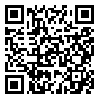1. Weinstein AM. Computer and video game addiction—a comparison between game users and non-game users. Am J Drug Alcohol Abuse. 2010;36(5):268–76. [
DOI]
2. Spekman MLC, Konijn EA, Roelofsma PHMP, Griffiths MD. Gaming addiction, definition and measurement: a large-scale empirical study. Comput Human Behav. 2013;29(6):2150–5. [
DOI]
3. Moosivand M, Azizi S, Fooladvand S. Modeling online gaming addiction based on communication skills and feelings of loneliness with the mediating role of adjustment among adolescents during the covid-19 epidemic. Psychological Achievements. 2023;30(1):105–20. [Persian] [
Article]
4. Zhao W, Wei T, Zhou R, Wang Y, Wang Y, Ren Z, et al. The influence of online game behaviors on the emotional state and executive function of college students in China. Front Psychiatry. 2021;12:713364. [
DOI]
5. Locascio G, Mahone EM, Eason SH, Cutting LE. Executive dysfunction among children with reading comprehension deficits. J Learn Disabil. 2010;43(5):441–54. [
DOI]
6. Anderson VA, Spencer‐Smith MM, Coleman L, Anderson PJ, Greenham M, Jacobs R, et al. Predicting neurocognitive and behavioural outcome after early brain insult. Dev Med Child Neurol. 2014;56(4):329–36. [
DOI]
7. Anderson VA, Anderson P, Northam E, Jacobs R, Mikiewicz O. Relationships between cognitive and behavioral measures of executive function in children with brain disease. Child Neuropsychol. 2002;8(4):231–40. [
DOI]
8. Moradi A, Akbarzadeh M, Farnia V, Alikhani M, Abdoli N. Comparing response inhibition and risky decision-making in people addicted to computer games with drug dependent patients and normal people. Journal of Cognitive Psychology. 2021;8(4):41–59. [Persian] [
Article]
9. Nie J, Zhang W, Chen J, Li W. Impaired inhibition and working memory in response to internet-related words among adolescents with internet addiction: a comparison with attention-deficit/hyperactivity disorder. Psychiatry Res. 2016;236:28–34. [
DOI]
10. Erdogan O. The mediator's role of communication skills in the effect of social skills on digital game addiction. Acta Psychol (Amst). 2023;237:103948. [
DOI]
11. Zamani E, Kheradmand A, Cheshmi M, Abedi A, Hedayati N. Comparing the social skills of students addicted to computer games with normal students. Addict Health. 2010;2(3–4):59–65.
12. Widyanto L, McMurran M. The psychometric properties of the Internet Addiction Test. CyberPsychol Behav. 2004;7(4):443–50. [
DOI]
13. Whang LSM, Chang G. Lifestyles of virtual world residents: living in the on-line game "Lineage." CyberPsychol Behav. 2004;7(5):592–600. [
DOI]
14. Matson JL, Rotatori AF, Helsel WJ. Development of a rating scale to measure social skills in children: The Matson Evaluation of Social Skills with Youngsters (MESSY). Behav Res Ther. 1983;21(4):335–40. [
DOI]
15. Grant DA, Berg E. A behavioral analysis of degree of reinforcement and ease of shifting to new responses in a Weigl-type card-sorting problem. J Exp Psychol. 1948;38(4):404–11. [
DOI]
16. Bowden SC, Fowler KS, Bell RC, Whelan G, Clifford CC, Ritter AJ, et al. The reliability and internal validity of the Wisconsin Card Sorting Test. Neuropsychol Rehabil. 1998;8(3):243–54. [
DOI]
17. Shahgholian M, Azadfallah P, Fathi-Ashtiani A, Khodadadi M. Design of the Wisconsin Card Sorting Test (WCST) computerized version: theoretical fundamental, developing and psychometrics characteristics. Clinical Psychology Studies. 2012;1(4):110–34. [Persian] [
Article]
18. Yousefi F, Khayer M. Investigating the reliability and validity of the Matson Social Skills Scale and comparing the performance of high school girls and boys on this scale. Journal of Social Science and Humanities. 2002;18(2):147–58. [Persian]
19. Zandi Payam A, Davoudi I, Mehrabizadeh M. Normalization and examining psychometric properties of Online Game Addiction Inventory–Persian Version. Iranian Journal of Psychiatry & Clinical Psychology. 2016;21(4):351–61. [Persian] [
Article]
20. Mohebi M, Asadzade H, Farrokhi N. Modeling the structural relationships of internet addiction based on executive functions and problems interpersonal: the mediating role of alexithymia. Shenakht Journal of Psychology and Psychiatry. 2020;7(3):150–65. [Persian] [
DOI]
21. Liu G, Yen J, Chen C, Yen C, Chen C, Lin W, et al. Brain activation for response inhibition under gaming cue distraction in internet gaming disorder. Kaohsiung J Med Sci. 2014;30(1):43–51. [
DOI]
22. Khanbabaei S, Abdollahi MH. A review of etiological models on Internet gaming disorder with emphasize on the Interactive model. Rooyesh. 2021;10(7):213–24.[Persian] [
Article]
23. Ryan T, Xenos S. Who uses facebook? an investigation into the relationship between the Big Five, shyness, narcissism, loneliness, and Facebook usage. Comput Human Behav. 2011 Sep;27(5):1658–64. [
DOI]



 ، فرزاد فرهودی2
، فرزاد فرهودی2 


